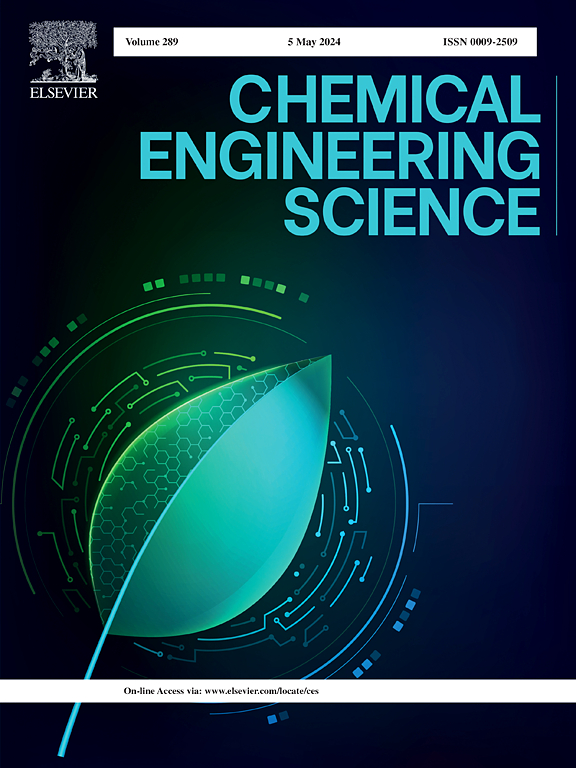Effect of Liquid Flux on Wetting Behavior in Slender Trickle Bed Reactors: A Particle-Resolved Direct Numerical Simulation Study
IF 4.1
2区 工程技术
Q2 ENGINEERING, CHEMICAL
引用次数: 0
Abstract
Slender trickle beds play a crucial role in various industrial processes involving gas-liquid-solid systems. Understanding the wetting characteristics is vital for optimizing their performance and efficiency. In this study, we employ a particle-resolved Computational Fluid Dynamics approach combining the Volume of Fluid (VoF) method for gas-liquid interactions and a second-order implicit Immersed Boundary Method (IBM) for fluid-solid interactions. The particle wettability is modeled by imposing a contact angle boundary condition at the gas-liquid-solid interface. The impact of the liquid flux on the wetting patterns and the rate of liquid penetration depth within the slender trickle bed is studied. The results show two main mechanisms of penetration through the bed: gravitation and inertia driven. The penetration of the liquid in the bed is driven by gravity when the liquid flux is low and the inertia is diminished in the top of the bed. This results in enhanced wetting from the onset of the penetration. If the inertia is high (high liquid flux), the initial liquid penetration is fast and spreading in the bed only occurs after full penetration of the bed.液体流量对细长涓流床反应器润湿行为的影响:粒子解析直接数值模拟研究
细流床在涉及气-液-固系统的各种工业流程中发挥着至关重要的作用。了解其润湿特性对于优化其性能和效率至关重要。在这项研究中,我们采用了一种颗粒分辨计算流体动力学方法,该方法结合了用于气液相互作用的流体体积法(VoF)和用于流固相互作用的二阶隐式沉浸边界法(IBM)。通过在气液固界面施加接触角边界条件来模拟颗粒的润湿性。研究了液体通量对细长涓流床内润湿模式和液体渗透深度速率的影响。研究结果表明了液体在床内渗透的两种主要机制:重力和惯性驱动。当液体流量较低且床层顶部的惯性减弱时,液体在床层中的渗透由重力驱动。这导致从渗透开始就增强了润湿。如果惯性大(液体通量大),液体的初始渗透速度就快,只有在完全渗透床层后才会在床层中扩散。
本文章由计算机程序翻译,如有差异,请以英文原文为准。
求助全文
约1分钟内获得全文
求助全文
来源期刊

Chemical Engineering Science
工程技术-工程:化工
CiteScore
7.50
自引率
8.50%
发文量
1025
审稿时长
50 days
期刊介绍:
Chemical engineering enables the transformation of natural resources and energy into useful products for society. It draws on and applies natural sciences, mathematics and economics, and has developed fundamental engineering science that underpins the discipline.
Chemical Engineering Science (CES) has been publishing papers on the fundamentals of chemical engineering since 1951. CES is the platform where the most significant advances in the discipline have ever since been published. Chemical Engineering Science has accompanied and sustained chemical engineering through its development into the vibrant and broad scientific discipline it is today.
 求助内容:
求助内容: 应助结果提醒方式:
应助结果提醒方式:


